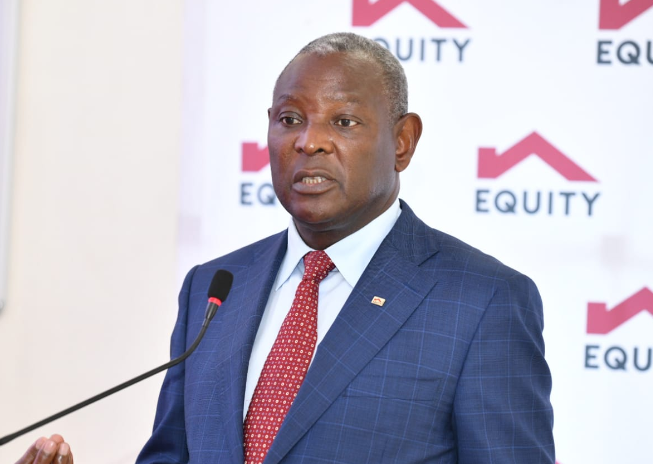All eyes remain on banks’ performance amid profits

The performance of commercial banks will be under the microscope this year due to election jitters with indications that ongoing reports of a bumper harvest was largely due to a sharp drop in provision of bad loans.
Analysts say commercial banks also made money from government debt, an opportunity they will continue to have as long as the National Treasury continues to suffer cash-flow challenges.
“For banks, the operating and net income margins for the year 2021 are off the charts given the reduced provisioning and return to normalcy after suppressed growth due to the pandemic,” said Mwango Capital, a financial research firm.
Financial interventions
Growth of non-interest income was muted across banks – a theme partly occasioned by the suspension of mobile to bank transfers – as part of financial interventions against the Covid-19 pandemic.
When releasing the financial report for Equity Group on Tuesday, Group managing director and chief executive James Mwangi said total income had increased to a record Sh112.4 billion in the year ended December, up from Sh92.9 billion in 2020.
Net profit for the period also doubled from Sh20.1 billion to Sh40.1 billion due to huge cuts in loan loss provision which the lender reduced from Sh26.6 billion in 2020 to Sh5.8 billion last year.
“The group has recommended a record dividend payout of Sh3 per share, totalling Sh11.3 billion, which is a 50 per cent jump from the previous dividend payout after earnings per share grew by 98 per cent to Sh10.40, up from Sh5.20 the previous year,” he said.
During that period, KCB Bank reduced provisioning for bad loans by 52 per cent while Absa by 48 per cent. Equity Bank dropped Its provisions for bad loans to Sh5.84 billion from Sh26.63 billion in 2020.
Equity Bank lending to the government was up 81 per cent last year to hit Sh391.4 billion reflecting the role of government in the profitability of banks.
On the other hand, KCB Group profit for the year ended December 31, 2021 jumped 74 per cent on cuts in loan loss provision and investment in government bonds.
Its net profit jumped to Sh34.2 billion from Sh19.6 billion a year earlier, in a major recovery that saw the bank declare dividends after uncertainties that came with Covid-19 restrictions.
Co-op Bank also grew its net income 53 per cent, helped by higher interest income from lending and investment in government fixed-income securities.
Net profit hit Sh16.5 billion, up from Sh10.8 billion a year earlier as the lender declared a dividend of Sh1 per share or a total of Sh5.86 billion.
“However, it remains to be seen how receding Covid-related risks square off with the impact of upcoming general elections on the operating environment this year,” Mwango Capital added in a statement.
Mobile transfers
Equity Bank asked the regulator last week to reinstate bank charges on bank to mobile transfers. Reinstatement of the fees will have an impact on banks’ non-funded income given the extent of bank-to-mobile transfers in Kenya.
This is happening even as some banks have already started charging fees for moving money from banks accounts to mobile money.
With the risk-based model, banks will see their margins increase as the cost of loans increase. High interest rates tend to improve banks profitability but borrowing could slow on election fears.
Kenyans online wondered how banks were making such huge profits at a time when people were enduring record inflationary pressure.














